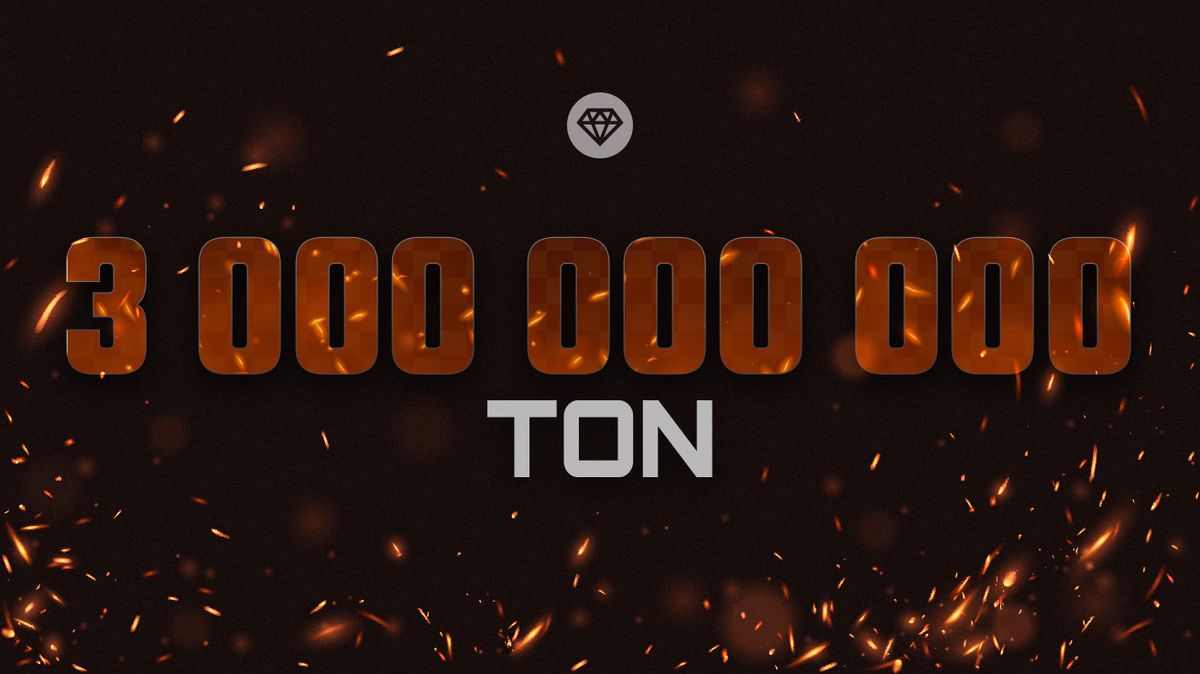FreeTON moves forward with rebranding; publicly burns 3 billion TON Crystal tokens

FreeTON has announced that it will be moving forward with its rebranding to Everscale and has burned 3 billion TON Crystal tokens to set the foundation for the new direction of the project. The token burn has occurred on a smart contract ensuring that the tokens will never be returned.
Following a summer of significant development, the FreeTON DeFi Alliance in conjunction with the FreeTON community, came together to draft a new plan of action that takes into account the growth of the network since it was launched and identifies what needs to be done to see the network achieve its full potential.
The results of the community’s deliberations can be seen in the FreeTON Alliance Partnership Extension, a document outlining key steps that will be taken with the aim of further expansion. Chief among the upcoming changes will be a project rebranding that will see the FreeTON network be renamed to Everscale, with the TON Crystal token (TON) becoming the Everscale token (EVER). In addition, measures will be taken to rebalance the supply and demand of network assets and integrate the network and its assets with major digital asset exchanges.
First up among the project’s scheduled changes is the burning of 3 billion TON Crystal tokens. The decision to burn the tokens was deemed necessary to set the stage for the transition from the network’s beta stage to mainnet. The transition to mainnet has been supported by a recent event that demonstrated the ability of Rust Nodes to deliver the best throughput on the market with unlimited potential for further scalability.
TON Crystal (TON) is the FreeTON network’s native token and the lynchpin of the FreeTON economy. The total emission of the TON Crystal token is 5.04 billion with around 735 million currently in circulation. The token burn of 3 billion TON will reduce the total supply by over half and increase the relative value of the token by 2.5 times.
The token burn was public and enacted via a smart contract that will ensure that the tokens will never be returned. Those wishing to observe the token burn could do so on YouTube, where the tokens were burned on a live stream.
Commenting on the token burn, FreeTON developers highlighted that it is, “a big step in getting away from the legacy of the TON project. The technology that we have developed is completely our own and the ecosystem that has been built up around it has opened up possibilities that greatly surpass the original TON framework. This token burn marks the start of a new chapter for this project, one that we are sure is going to have an indelible impact on the DeFi industry.”
The Telegram Open Network was launched by the Durov Brothers before it became mired in legal complications. After the Durovs ceased development on the project, it became open source, opening the door for the creation of the FreeTON network and the subsequent further development of the project. Having progressed substantially since its launch as FreeTON to where it now ranks alongside Solana, Polkadot, Near and other expansive DeFi ecosystems, Everscale is looking to continue developing uniquely advantageous blockchain solutions.
The smart contract that facilitated the token burn is up on GitHub, and the transaction, which sent the tokens to the “Black Hole” address is visible on TON Scan.
About Everscale (FreeTON)
Everscale is a fast, secure and scalable network with near-zero fees, which can process up to a million transactions per second thanks to its unique dynamic sharding technology. The network was originally built off of the Durov brothers' TON concept before launching as a separate entity. The change to Everscale was predicated by the network’s robust development which saw it move way beyond the original technological offerings of TON and build an entire ecosystem around its platforms and products, replete with its own nodes and technology. The ecosystem features a number of products, including a DEX and bridges with other blockchains.
Check our guide of the most promising crypto




